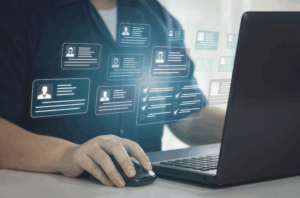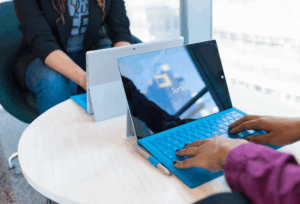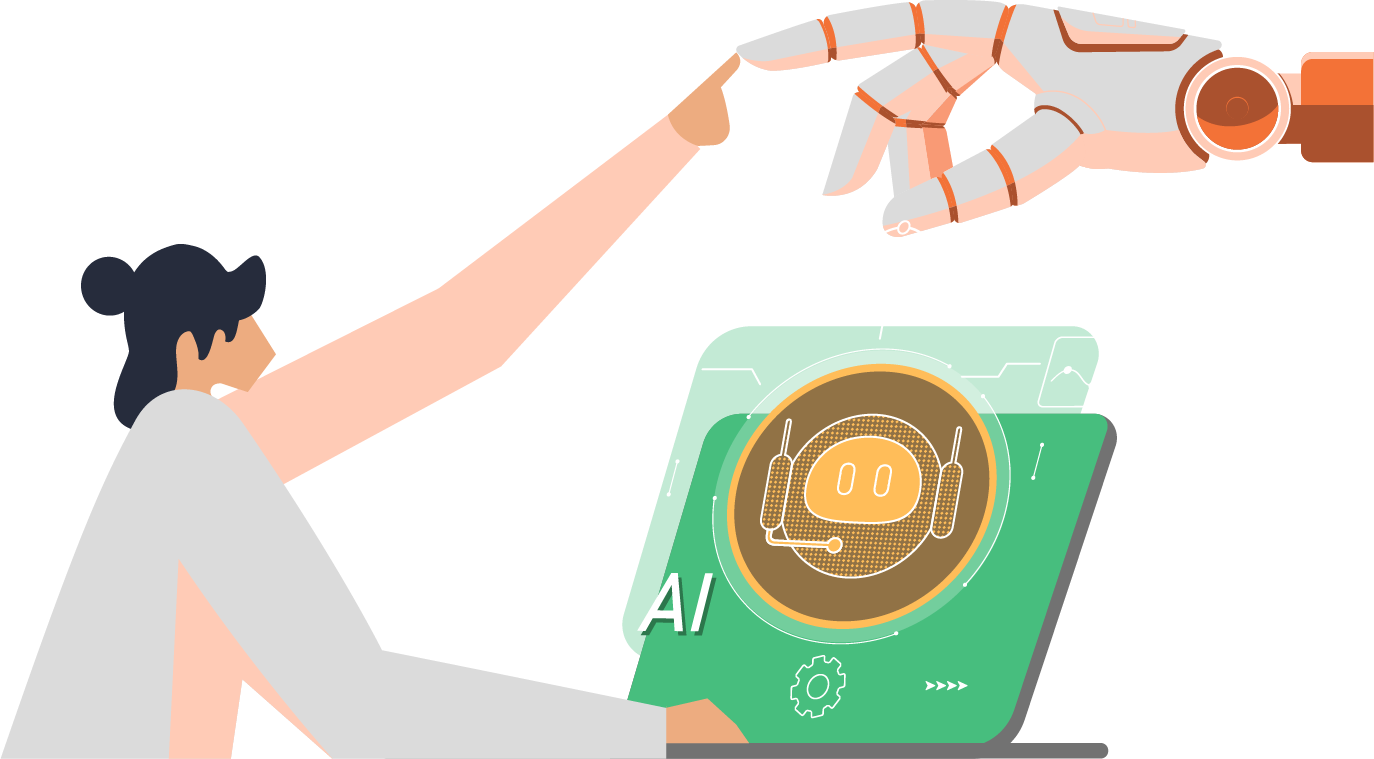WHERE DOES THIS CONCEPT COME FROM?
One of the earliest known uses of the term ‘digital nomad’ was in the 1997 book ‘Digital Nomad’ by Tsugio Makimono and David Manners which describes how technology allows for a return of societies to a nomadic lifestyle. It is unknown if the phrase was coined in this book, however it seems to be a pretty good description of a new work/lifestyle combination.
Digital nomads or DIMADS (my attempt at an acronym!) can also be closely linked to the development of the first car telephones. Suddenly a car became a mobile office and the advances in cellular telephony made staying in contact with clients and your office a reality, irrespective of location. However, there was still a ‘back to the office’ expectation (Rebecca Crick’s blog article ‘Impacts of the Great Reshuffle’ showcases the ramifications of employers lacking flexibility). In the USA a lot of companies called their head office the ‘Home Office’ so the family feeling of being together for a common purpose was embedded in their ‘expectation’.
Nonetheless, WEW (Working ElseWhere) soon became an acronym to replace the conventional out-of-office response. Shortly after WFA (Working From Anywhere and available through mobile conference calling and video technology) became a possibility and DIMAD became a natural progression.
BUT WHY?
People typically become DIMADS due to a desire to travel, spend more time with family and enjoy location independence. Compared to living in expensive cities and commuting long hours, a flexible lifestyle can have more than just cost advantages.
Workers, and particularly contractors, can take advantage of different jurisdictions and favourable tax benefits. In countries like Portugal governments recognise tax incentives as a key factor in attracting wealth-generating workers to parts of the country which might have seen labour and population losses in the past. Italy has a similar scheme in Abruzzo where relocating and investing in property in rural villages will unlock tax and business grants in addition to high-speed broadband services.
However, the biggest catalyst galvanising thinking and forcing this new approach to employee flexibility has been COVID-19. Had this pandemic not descended on us in late 2019, the progress to remote working and the truly Digitally Nomadic work ethic would have been far slower and much more cautious. Almost overnight the physical constraints of isolation and social distancing meant the office was a no-go zone and a very large proportion of workers had to adapt to a totally different work environment i.e., the ‘home office’. We might not have been nomads but digitally we were remote and our location was irrelevant (providing our umbilical cord – the internet – was intact and accessible.
When you include these factors amongst being closer to partners, children and families, removing or reducing the commuting nightmare, the costs and inconveniences, it all adds up to a powerful message:
You don’t need to go to the office to deliver performance and efficiency! Work is what you do, no longer where you go.
Once we tasted the freedom of remote working, we started to embrace the nomadic lifestyle. In a way it was like learning to walk; baby steps, now I can do it, where can I go and what can I achieve?
WILL MY INDUSTRY TOLERATE/DISLIKE/ACTIVELY EMBRACE THE CONCEPT?
IT businesses like Insentra are perhaps the founders of the modern remote working concept and the culture shock of ‘not going to the office’ (which some companies loathe since they feel powerless to invoke mass control techniques) is not an issue for our IT crew.
Start-ups and young companies are no longer shackled with office rental agreements and financial burdens as they consider the status of a digital nomad as more cost-effective. Why invest profits in bricks and mortar when people are the most valuable resource? Why buy mainframe computing when local hard drives have been replaced with cloud computing? A cellular phone (mobile) laptop and headset are backpackable and ready to rock. There are obviously roles in every company which do not suit this approach, however, as a general observation the migration from office to home to DIMAD is as predictable as the transition from a walk to the corner store to online shopping.
IS IT SOMETHING I WANT TO DO?
If your personality needs the social interaction of physically being next to your colleagues during your working day for you to perform at your best then of course, it might not be for you. However, if you feel confident and capable of interacting via technology rather than in person then why not?!
Being able to work in some of the greatest locations in the world where you can swap a car park view for a lake or mountain range is part of its charm. Why not trade your usual packed-train commute for an early morning drive to the beach so you can take a stroll while you’re on a conference call? How about screensharing next to the pool in Hawaii or swinging in a hammock at a tropical house in Thailand? Or maybe you prefer being chauffeured down a French alpine road whilst taking a client call? The list is inexhaustible and virtually; the world is your oyster. It sounds sort of risky and dangerous, but it’s also exciting, challenging and rewarding!
My own version of this concept was about to be set in motion back in 2011 having made an agreement with my Australian employer at the time to work for four months of the year in the UK and eight months in Australia. Unfortunately, when my husband became seriously ill our life changed completely, and our plan was deferred until he recovered. Thankfully he’s now well enough for us to refocus on our life goals and to discover if there is a version of the DIMAD concept we can fit into our career/life balance.
IS IT SOMETHING I CAN DO?
Well, that depends on your definition of being a DIMAD. One of the dictionary definitions of a nomad is ‘a person with no fixed residence who roams about; a wanderer’. Now as far as I know, this isn’t a quality which would make you employable, so when I’m referring to the term nomad, I mean it as a general ability to work and live in different locations whilst still being able to deliver my role effectively. Can you cope with the mobile internet and all its idiosyncrasies and hassles? Some of us are used to being reliably connected via to the internet, hardwired to our data, reasonably drop-out proof and with excellent audio, video and data speeds. I’ll talk more about this later because depending on where you travel, it’s not always dependable!
And they aren’t the only big blockers if you dream of this lifestyle.
All of us (unless we still live at our parent’s home or sleep on a friend’s couch) have accommodation scenarios which would need to be addressed before we could even start to plan a DIMAD lifestyle. Many of us have partners, children and other dependents who cannot simply be packed up with our laptops and shipped off with us. Staff with more complex relationships with their organisations can also be limited in their scope to work in this way. Trainers and managers who need to demonstrate skills or have complex processes to explain are often far more efficient in a physical presentation or one-to-one. HR staff may have delicate issues to discuss that should only be done in a face-to-face meeting (not even on a video call).
What about your partner? Do they work? Will they have to sacrifice their holiday allowance or take an unpaid sabbatical to be with you? Will the kids use school holidays or will you simply pay the fine to take them out of school? It’s complex but not impossible.
Perhaps the two ends of the spectrum of age and circumstances, postgraduates or empty nesters who have already established a WFA routine and have already ironed out a lot of the tech issues are the main groups who can take advantage of the DIMAD revolution? Luckily my partner and I can satisfy most of the criteria, at least for a short-term experiment.
PART 2. ON BEING A DIMAD
We planned to visit the northwest of Spain for a holiday in 2020. Unfortunately, the trip was curtailed by COVID lockdowns and we had to return to the UK without actually reaching our destination.
Our DIMAD plan this time was to make it a working holiday and drive through France to Cantabria, the Asturias and Galicia, rent a house or apartment for a week in each location and spend the rest of our allocated 28 days getting there and back, trying to drive on weekends and being static during the week so I could work. We also took our dog, Scooby-Doo the cockapoo (so we had to account for him).
It was the plan, but like all the best-laid plans the reality was a little more complex since we had to make sure we had accommodation which provided a workable area with at least a chair and table, a good phone signal and broadband, would accept our dog, had secure parking, etc. We accepted that some of this could be done in advance but we felt that we could be true DIMADS and do a lot of bookings on the fly.
After laying out some general guidelines such as duration, timing and target travel areas we asked the following questions (and this would be unique to your circumstances);
- How would you travel? Fly, plane, train, bus or a combination?
- Will you drive? More importantly, how confident are you driving overseas? Would someone drive for you?
- Do you get motion sickness if you must use a laptop for prolonged periods whilst travelling?
- Can you afford the travelling expenses and accommodation to do this and still pay your regular bills and rent/mortgage back home?
- Do you have a passport and visa/s? Are they valid for the countries you want to visit?
- Do you really enjoy eating red hot spicy food or fermented fish for breakfast, lunch and evening meals?
- Can you speak or even attempt to speak Basque, Catalan, Mandarin or Tagalog? Are you hopeless (or brilliant) at adapting to other cultures and religious social conventions, for example?
- Have you researched adequately and taken note of government advice about the countries you wish to visit?
- Is there an outbreak of Dengue fever on the pacific island you’ve decided to base yourself on? (There was when we tried to book a round-the-world holiday a few years ago and it ruined the whole trip).
- Due to time zones, will you have to work vastly different hours every day just to be able to function efficiently? How will this affect your partner/sleeping/dog walking routines?
- Are you insured for medical emergencies? Can you get your prescription medicine easily wherever you end up? How will you get your monthly order of contact lenses?
- Can you suspend your subscriptions to all those magazines? Do you have those timers to turn your lights on and off whilst you’re away?
- Will you get homesick, miss your mum, the pub, or your allotment, and wish you were back in rainy/sunny/foggy England/Sydney/San Francisco after a few days away?
- Are your neighbours or relatives able to help with looking after your place whilst you’re away or more likely to break in and steal your TV?
These seem to be obvious questions but how many people leave things like this till the last minute and then find out there’s a serious issue hindering their plans?
We chose to drive, however some DIMADS might choose the train, plane or even a bus (providing mobile access is available). I still prefer the car passenger option because it allows me to be flexible in location and confident in the security of information given confidential conversations and images aren’t going to be overheard or seen, etc. Naturally to make that work you need a chauffeur! My partner volunteered to put in the major stints to get us to our destinations whilst I tried to work through signal dropouts and disconnections! As far as any further planning was concerned, we agreed we would try to establish an office environment which was not distracting and offered a comfortable workspace. The bottom line was we needed to remind ourselves this wasn’t just a regular holiday and any R & R would be after normal working hours/on weekends.
THE EXPERIENCE
Like many, I’ve worked on trains and sometimes from the car if we’ve been travelling but never for any prolonged period and this proved to be a real challenge when faced with a four-to-six-hour journey. Practical considerations like seat comfort, screen viewing angles, sunlight reflections, laptop battery duration and background noise are important in your working environment and, in a moving vehicle, are not entirely controllable so be prepared for some compromises.
TIP: Travelling west into a setting sun is not recommended!
Twisty mountain roads are for those of us with strong stomachs and even if you aren’t usually affected by motion sickness, staring at a laptop screen for a long time whilst moving wasn’t the nicest sensation. Couple this with the patchy signal strength in France (but not in fab 5G Spain, bravo to Telefonica) my recommendation would be to try and plan your travel times to avoid working hours if possible.
Similarly, travel itineraries need some careful consideration. Those who choose to fly to their destinations have the fewest disruptions to their working plans (if not the most flexible options) simply because the transit time in most cases is the shortest. Driving on the other hand often requires multiple overnight stops, setting up your base and dismantling it every day can become a bit of a pain with new wi-fi passwords, ISPs and sometimes unpredictable internet access.
Our various hosts seemed to be quite unsurprised when we told them we weren’t on holiday and explained our DIMAD mission to them. Often the smallest French hotels, once notorious for being very outdated and change-resistant, seemed to have stepped up to the plate and started to offer free, reasonably fast wi-fi, at least a small desk and chair and sometimes an area elsewhere for non-confidential work. The houses and apartments we rented in even remote Spanish locations were mostly 5G (take note, Openreach) and Netflix-enabled smart TVs, internet radio, etc., so home comforts didn’t lack either.
We managed to achieve a combination of overnight stops during weekends, two to three-night stops and two longer-term base camps of 5 to 7 days in our 28-day DIMAD experience and there are many lessons learnt (we’ll summarise this in the last part of the blog).
I’m hoping (and feel confident) during this period of experimental remote working my performance was acceptable to my colleagues and our customers, and the virtual interface was as good as if it were based in my usual location.
IS BEING A DIMAD REALISTIC AND FEASIBLE?
Learning the answer to this is what this experiment was all about. Is the digital nomad concept just another trendy concept and repackaging of an existing way of working or is it a completely novel approach?
After a good deal of reflection and getting quite a bit of feedback from colleagues (and even my chauffeur partner) I’ve come to several conclusions and have some advice, guidance and tips for those of you who might fancy dipping your toes into the water of this concept.
Early in the piece it became obvious you must be able to present a robust argument for undertaking this type of working scenario, not just to leadership but also to yourself and your family. Unless you happen to be in the envious position of having a permanent holiday home or base elsewhere in the world or absolutely no ties to consider, any DIMAD periods involve serious upfront planning, commitment and most importantly, a consideration of cost.
One major factor affecting this nomadic lifestyle is the new increased cost relating to fuel. Unfortunately, it is affecting every form of travel – most obviously at the pumps when we fill our cars but we’re also seeing it on flights, trains, boats and bus fares. Unless you have a horse or a camel (and I hear the war in Ukraine has affected the price of animal feed) or a robust pair of walking boots like the many pilgrims we passed on the Camino De Santiago De Compostella, your travel costs will be far more than perhaps you might have imagined.
If you decide you’ll take a radical view of getting to your chosen destination then I assume it is possible to backpack your way around the world and still work, find internet and mobile phone services in the remotest locations. The next consideration is accommodation and food costs. If there are two of you (or more) then I doubt if it’s possible to eat, sleep and drink for less than £150 to £200 a day in Europe (and why should you live in a style which is less comfortable than the one you have at home?). It wouldn’t be far-fetched to budget at least £5k per month in addition to travel costs and all the usual bills you have to pay for your ongoing arrangements at home. Road tolls and fuel cost us approximately £1000 and we only went about 3500 miles…
MY FIRST CONCLUSION: MAKE SURE YOUR FINANCES CAN HANDLE THE EXPERIENCE
Remember, you promised to take everyone to Disneyworld as well this year!
Secondly, can you handle the double stress of delivering your project or meeting your deadlines whilst negotiating the complexity of your travels and relocated lifestyle?
In my case it was a lot easier because there were only two of us and one of us wasn’t working so he could make sure the basic things we had agreed on over dinner got done the next day. However, normal domestic life and shopping might be easy in your home country but when the supermarket signs are in Catalan or Thai, then trying to find the non-bio laundry capsules is not as easy!
We were lucky not to run into any issues with our connections which couldn’t be resolved but I can imagine a scenario where the DIMAD is based in an exotic location and there is an issue with a service required to be resolved to keep working and there’s a language barrier, how would your stress levels cope? What happens if a booked hotel turns out to be unavailable because there’s been a mistake or a mix-up in arrangements? All these things are painful on holiday but when they interfere with your work, they are doubly troublesome. Can you cope with unexpected mishaps and stuff-ups?
MY SECOND CONCLUSION: MAKE SURE YOU’RE MENTALLY PREPARED FOR THE ADDITIONAL STRESS
Not just you either, your partner will most likely be having the same issues.
So, you planned your experience, managed to sort out your finances and you’re mentally prepared to deal with the extra stress of an alien environment. You’re all set and ready to start your journey. But is this really something you should do or is it simply a vanity project or pet theory you’re trying to convince leadership of? Could it be you’ve been caught up in the wave of a lifestyle buzz that’s become fashionable and trendy? Is the DIMAD concept just a glamorised version of a concept that’s been around for a very long time?
My feeling is becoming a digital nomad might be a lifestyle few privileged workers can achieve, but in the short term (or at least until society becomes far less formally structured) we will all need some sort of anchor in our working environment. This doesn’t need to be an office we all attend every day – we’ve made that evolutionary step already, but I doubt we are prepared or able to be roaming nomads who can operate from any location at will. Having said all this despite all my reservations, it was a fantastic experience I don’t regret!
FINAL CONCLUSION: TAKE A DEEP BREATH AND GIVE IT A TRY!
I hope you enjoyed reading about my DIMAD experience and have found several considerations for your own digital nomad endeavours. If you’d like to check out more of our blogs, our Insentra Insights has some great reads (clearly I am definitely not biased at all!).










